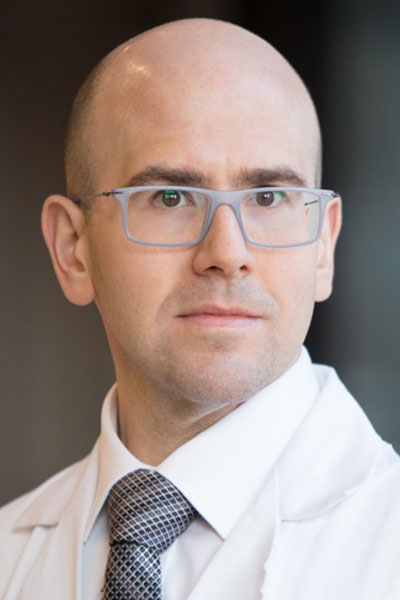
The use of point-of-care ultrasonography has continued to evolve in recent years, as it has proven to be more accurate in diagnosing cardiopulmonary conditions than physical exam and chest radiography alone.
“Clinicians have more and more access to handheld ultrasound or bedside ultrasound,” said Ariel L. Shiloh, MD, FCCP, director of Critical Care Consult Service and professor of medicine at Albert Einstein College of Medicine in New York City. “Instead of calling another service to evaluate the patient, we are able to perform the ultrasound ourselves and interpret it to give the patient on-the-spot therapy.”
With this increased use of point-of-care ultrasound comes an increased need for pulmonary/critical care clinicians to improve their skills at image interpretation and clinical applications relevant to critical care ultrasonography. Those topics will be covered in the CHEST 2022 session, Rapid Fire Ultrasound Cases, on Tuesday, October 18, from 8:00 AM – 9:00 AM, in Room 104DE. Dr. Shiloh will chair the session, which will consist of a series of clinical cases using ultrasonography presented as “unknowns.”
“This is designed to be a fun session for attendees with a lot of audience response and participation,” Dr. Shiloh said.
The session will include the presentation of four to five cases from seasoned faculty members, including Subani Chandra, MD, FCCP, of Columbia University Irving Medical Center in New York; Kenneth Lyn-Kew, MD, of National Jewish Health in Denver; Sonia Castillo, MD, FCCP, of Kansas City Veterans Affairs Medical Center; and Lina Miyakawa, MD, of Mount Sinai Beth Israel in New York.
Panel members will analyze images from each case in an attempt to reach a final diagnosis and management strategy. Each presentation will be integrated with a series of audience response system questions, and attendees will see dynamic image interpretation in action with its strengths, pitfalls, ambiguity, and a final accurate or inaccurate diagnosis.
Audience members can compare their own answers to the opinions of the experts, and Dr. Shiloh said to anticipate a rapid-fire, energetic, informative, and amusing interchange between panel members, who will not hesitate to call for support from the audience.
The “unknown” cases will focus on interesting or offbeat cases where clinicians might see something out of the ordinary, Dr. Shiloh said. Ideally, the cases will expand ultrasound knowledge for the audience.
“Like with most things, the more you do it, the more you learn,” Dr. Shiloh said. “As time progresses and there is more and more availability for ultrasound—to the point where some people can carry it in their pocket these days—the more you will find things that you weren’t necessarily looking for. This session will try to highlight how this tool can be used in different scenarios and how it can change patient management.”



